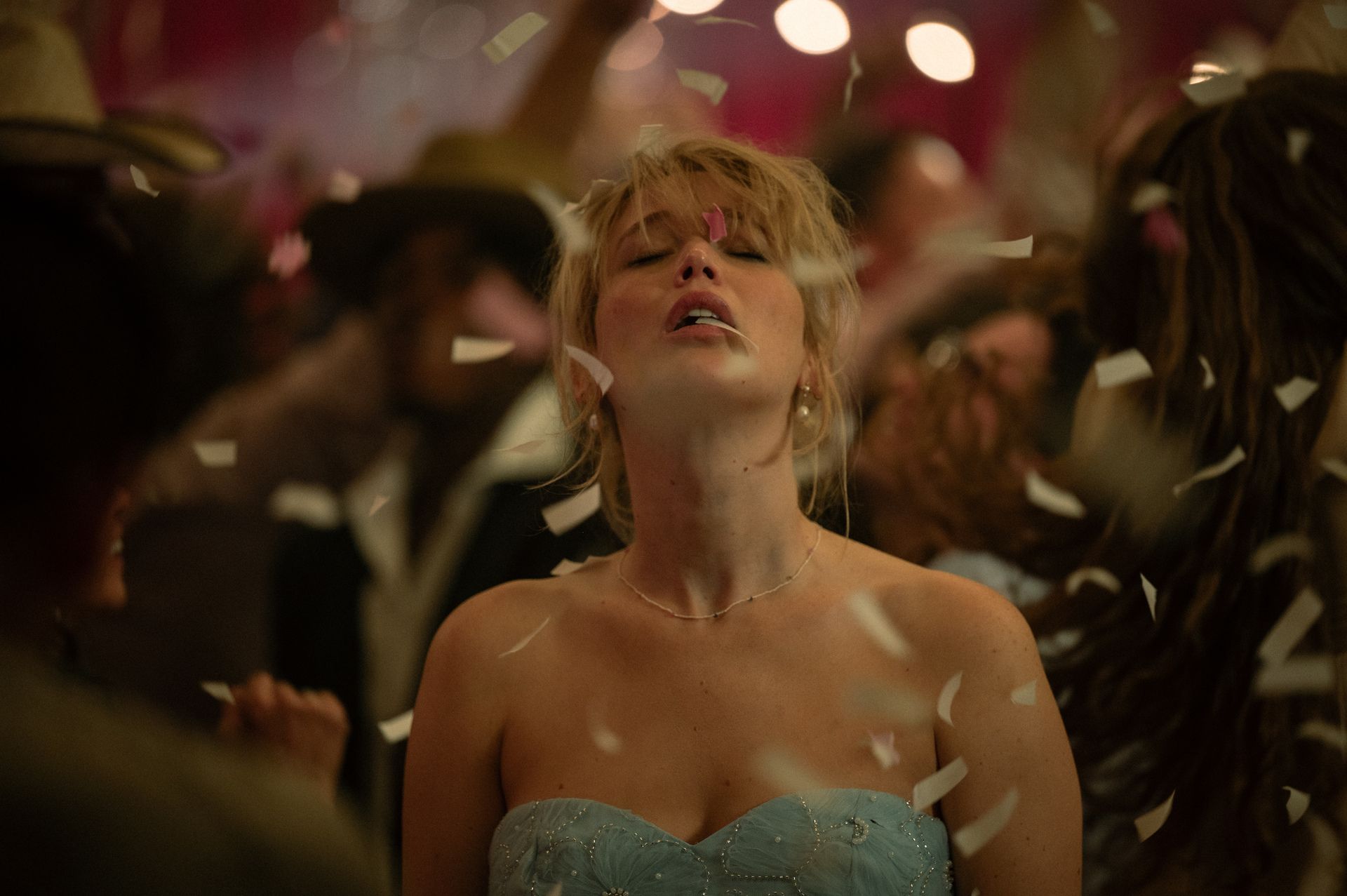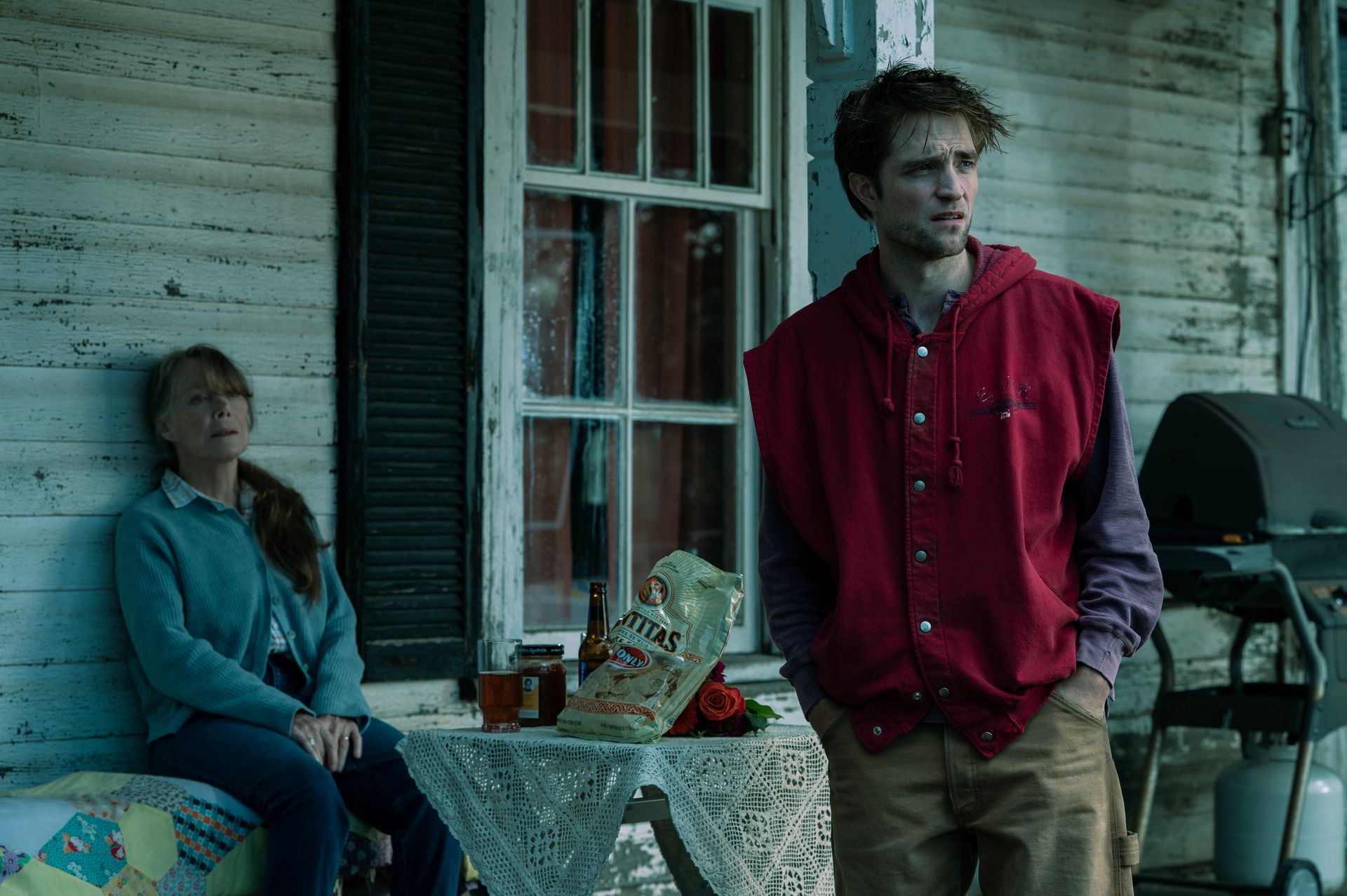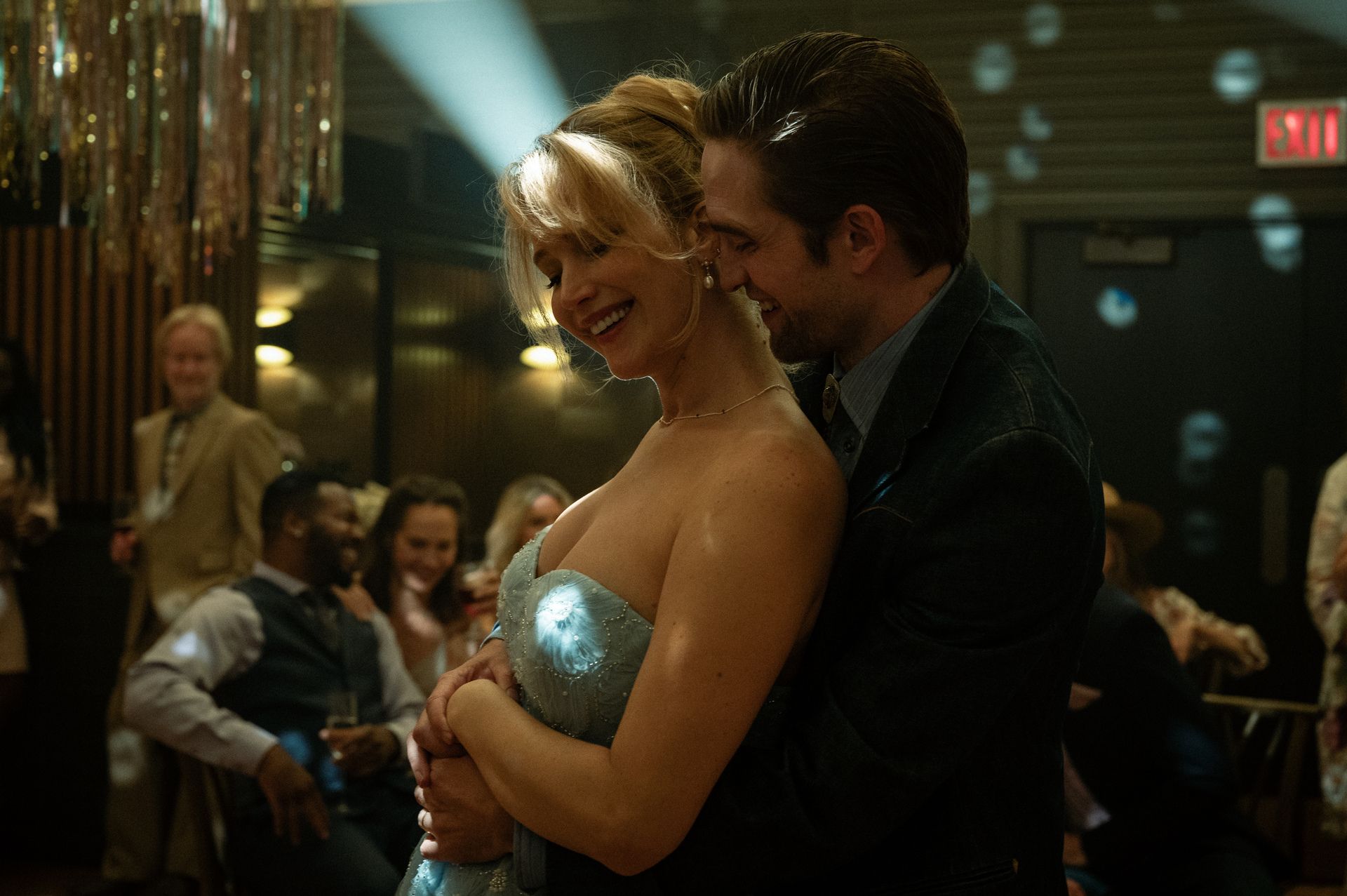
Jennifer Lawrence in Die My Love. Photo: Kimberley French
(118 mins, 15, in cinemas now)
The poster for Die My Love, the first feature film in eight years from the invigorating Scottish director Lynne Ramsay, doesn’t give much away – maybe deliberately so. It’s the film’s star, Jennifer Lawrence, standing amid falling confetti, with her face upturned and her eyes closed. Perhaps this is a moment of ecstatic solitude in a hopeful film about self-actualisation? Something along the lines of the 1942 Bette Davis classic Now, Voyager, or Joachim Trier’s The Worst Person in the World? Or indeed Ramsay’s own subversive and sublime 2002 film Morvern Callar?
In fact, Die My Love is adapted from a 2012 novel by Argentinian writer Ariana Harwicz, and Lawrence plays Grace, a woman who moves from NYC to the middle-of-nowhere midwest with her partner, Jackson (Robert Pattinson). There, she gives birth to their child, stays home a lot while he works, and experiences a sense of increasing isolation which eventually blossoms into a full-on mental breakdown.
There are overlaps here with Ramsay’s previous films – particularly We Need to Talk About Kevin, the Tilda Swinton-starring 2011 adaptation of a novel about a woman whose maternal ambivalence may or may not have resulted in a mass-murdering son – but it wasn’t Ramsay who originated this current project. That, oddly, was Goodfellas director Martin Scorsese, who suggested the book as a producer-star vehicle for Jennifer Lawrence.
Grace’s fingernails are bleeding not from ‘trying to bake a cake’ but from climbing the walls in a sexually frustrated rage
Lawrence then signed up Ramsay, who has spoken of her initial, understandable, reluctance to retread old ground. My own sentiments about postpartum ennui in film – speaking as both a critic and a mother of two – are similar to those expressed by Grace when she’s stuck small-talking in the kitchen at a kids’ party: “Babies are hard,” says a fellow mum, with a pitying smile. “I don’t think anybody talks about that enough.”
“It’s all anyone talks about,” is Grace’s stony-faced rejoinder.
That’s an overstatement, but it is true that, after decades of treating the baby-raising years as too tedious to mention, Hollywood is suddenly interested. We’ve had Amanda Seyfried weeping silently in A Mouthful of Air, Amy Adams releasing parenting stress by turning into a dog in Nightbitch and soon Rose Byrne feeling frazzled in If I Had Legs I'd Kick You.

Sissy Spacek and Robert Pattinson in Die My Love. Photo: Kimberley French
On the one hand, this is cheering evidence of increased gender parity. On the other, it risks reducing women’s varied, subjective experiences to a set of biological functions and a surge of hormones. Like when you offer up a valid, well-reasoned grievance at work, only to hear someone ask “Is she on her period?”. (Something which reportedly actually happened to Ramsay during the 2013 production of Jane Got a Gun. No wonder she walked off set.)
So in Die My Love, while Grace occasionally trots out mom-guilt platitudes, her situation is more layered, and her response more extreme. Grace’s fingernails are bleeding and bandaged not from “trying to bake you a cake”, as she fibs to the party hostess, but from climbing the walls in a sexually frustrated rage after her husband fails to get it up to order (“You impotent piece of shit! You useless fucking faggot!”).
Similarly, Grace is a relatively attentive, loving mother who – unlike the woman in Harwicz’s book – never complains about her baby. It’s the man in her life who’s penning her in. And the dog. But most of all the house, which seems to have its own inescapable traction field, forever pulling her back indoors. (In this way, Die My Love also retreads Lawrence’s back catalogue, specifically 2017’s dream-logic horror Mother!).

Jennifer Lawrence and Robert Pattinson in Die My Love. Photo: Kimberley French
Grace’s stir-crazy confinement is conveyed in every aspect, from the choice of Academy ratio (a boxed-in 1.37:1, compared to the more standard 1.85:1), to the dated wallpaper. This tells us, before anyone else lets slip, that Grace and Jackson’s home was decorated by a different couple, in a different era, who were probably also bored out of their minds.
Aided by a career-best performance from Lawrence – Uncle Marty steered her right! – the film’s great strength is how fully immersed it is in Grace’s subjectivity. This does mean that matters outside her purview float by without ever being fully resolved. (Is Jackson actually cheating? And why don’t they just get a TV?)
The radical part here is not in deeming a new mother cinema-worthy, but in the insistence that her experience is not the girls-only stuff of whispered, wine-night confidences. It’s a story with wider relevance and bigger themes. Like: to what extent can you ever truly mitigate the loneliness of existence by falling in love? And is there any such thing as a sane response to the insane pressures of patriarchy? Ramsay’s film doesn’t always succeed in breaking free from its generic constraints, but there’s plenty to admire in the ferocious struggle.